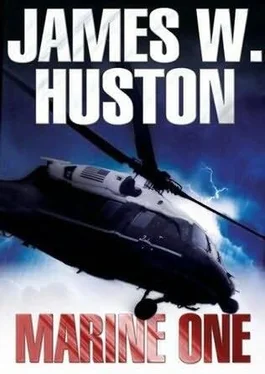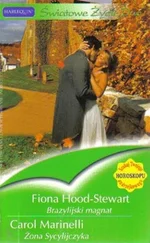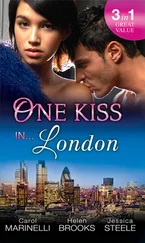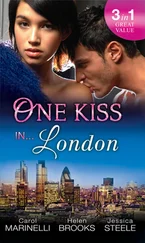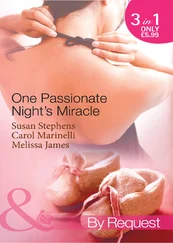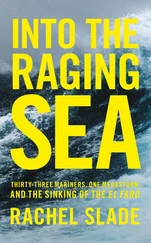I turned the page. "Mr. Hackett spent a lot of time discussing the people who balanced the blade, making them look like bad people. But did you notice how little time he spent discussing with you the mechanism of the crash? How it happened? The evidence regarding the tip weights, at least as presented by Mr. Hackett, is nonexistent. All he noted was that the tip weights were not on the blade that was found on the ground next to the crash. That could happen in a number of ways. That blade is spinning almost at the speed of sound, and if the end of the blade hits anything, the tip weights will be thrown off. All the experts will agree with that. But Mr. Hackett would have you believe that somehow the tip weights came loose and flew off the end of the blade. On what is that theory based? The tip weights were not found during the investigation. And of course we know they had to be on the blade, because the helicopter never could have taken off if that blade weren't in balance on takeoff. It would have generated such vibrations as to make the helicopter unflyable. And this helicopter had flown for several weeks with this blade on it. There were no vibration problems whatsoever. So we know the tip weights were on the blade and that it was in balance when flying to the White House. So what happened? We don't know. The lost blade could have been the cause of the accident, or it could have been an effect of the accident. It could have been that the helicopter was already coming apart because of the horrible storm, and the blade hit another part of the helicopter like the tail boom, and the tip weights were thrown off. We don't know. Mr. Hackett doesn't know, nor do his experts. But because there was an irregularity in the documents, he jams his theory of the crash into that one fact. He wants to imply some kind of sabotage or some kind of inappropriate placement of tip weights. He would have you believe that WorldCopter intentionally, or with unbelievably reckless disregard for the safety of the president, caused this accident by misbalancing the tip weights, or by not tightening the nut that held them on.
"Perhaps neither of those three possibilities captures your attention. So if it wasn't the weather, and it wasn't Colonel Collins, and it wasn't the tip weights coming off of the blade, what was it? What caused the accident? There's one other cause, one other way that this helicopter may have been brought down, that is simply hinted at in the evidence that will be presented to you." I looked at the eyes of the jurors, who had started listening more carefully. "You will need to be discerning, and you will need to listen very carefully to the testimony. I'm not saying you can't consider the other three possibilities. Perhaps they are the cause. But there's one additional possibility that you're going to have to consider. Rather than tell you what it is now, I will simply ask that you pay very close attention to the evidence all the way through to the end. And at the conclusion of this trial, I will ask you whether you saw that fourth cause. The fourth possibility. Perhaps the real reason that this helicopter crashed.
"That will require that you not decide yet what you're going to do. And not decide after Mr. Hackett's evidence is complete. And not decide midway through my presentation of evidence. It means you'll have to wait till Mr. Hackett and I have an opportunity to stand back up here and tell you what we think the evidence has shown. Then you can make up your mind and go into the jury room and do what's right. Just know this. Mr. Hackett may be wrong, or I may be wrong. Or we both may be wrong. It's up to you to decide what happened. And that will require you to pay very close attention to the evidence and listen very carefully to the witnesses. Thank you for your attention, and I look forward to speaking with you at the conclusion of this trial."
As I made my way back to the table, I saw Rachel, who looked stunned and somewhat horrified.
I heard the judge say behind me, "Mr. Hackett, call your first witness."
I sat down and took a deep but silent breath. Rachel put a Post-it note in front of me: What is this fourth theory?
I wrote, Don't know yet, and handed it back to her.
Hackett stood and said, "Your Honor, plaintiffs call Mrs. Adams, the first lady."
The first lady walked to the witness box, took the oath, and sat. She considered crossing her legs but realized there really wasn't room. She sat slightly forward. The jury was mesmerized, and the audience was absolutely silent. I could hear the scratching of the chalk on the paper of the two artists sitting in the front row.
Hackett began his questioning with the usual background information, college-graduate school for him, law school for her-marriage, his political career. Then Hackett asked, "What was your relationship like when he was the president? Did he ignore you?"
She smiled. It was the first time I had seen her really smile in person. She had a warm, engaging smile. "No, he included me in almost everything. I sat in on meetings with heads of state, I talked to him about foreign affairs and domestic issues. We were a team, sort of. I mean, I didn't have any real say, or authority, but he cared about what I thought. I think he respected my judgment and liked to have someone as a sounding board who wouldn't call the Washington Post the next day."
The gallery chuckled. Hackett was smooth. Mrs. Adams was comfortable, relaxed, articulate, and trustworthy. He continued, "You were in the White House the night the president died, were you not?"
"Yes." Her face looked suddenly downcast.
"Do you remember the evening?"
"Of course."
"Do you know what the president was doing before he got aboard the helicopter that ultimately crashed?"
"He was with me."
Hackett hesitated as if he didn't know the answer to the next question, as if there were some danger in his asking it. "What were the two of you doing?"
The First Lady gave a wan smile. "We had dinner together. He had been working late, and we didn't begin eating till after eight o'clock."
"Where did you eat?"
"In our private quarters."
"Do you remember what you had? It's not important, I was just wondering whether you remembered."
"Actually I do. I love fish and eat it as often as I can. Jim really doesn't… didn't like fish much, but he read somewhere that eating fish at least once a week made a difference in something or other. So he ate a fish dinner with me at least once a week. And this was that dinner."
"So the evening he died, he was eating fish at home with you. But then he got up and headed to a meeting."
"Yes. He said he had to go out to Camp David, just for one night. He was to come back Friday evening."
"Do you remember the weather?"
"It was a terrible storm. The wind was throwing the rain against the windows to where it made that loud clicking kind of sound, almost like hail, but it's just rain hitting glass hard. I'm sure you've heard it."
"Have you ever been to Camp David, Mrs. Adams?"
"Of course. Many times."
"Have you ever driven there from the White House or been driven there from the White House?"
"Yes."
"How long does it take to get there?"
"It depends. But it's about an hour and a half."
"Did you know that the president was going to fly to Camp David that night in the presidential helicopter?"
"Yes. He told me that."
"Didn't you wonder why he needed to fly when he could be there in an hour and a half by driving?"
"I did. I asked him."
Hackett turned toward the gallery and then back toward Mrs. Adams. "What did he say?"
"He said he had a meeting. He was meeting people there, that it was very important, and that they had a very short window of time."
"Who was he meeting there, Mrs. Adams?"
Читать дальше
